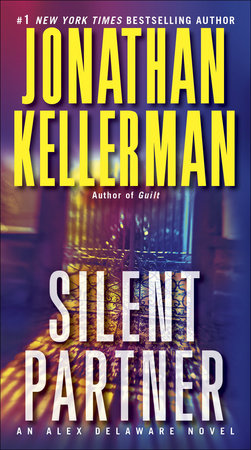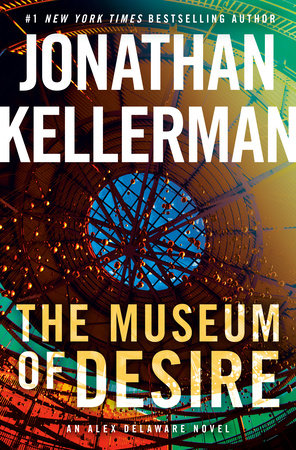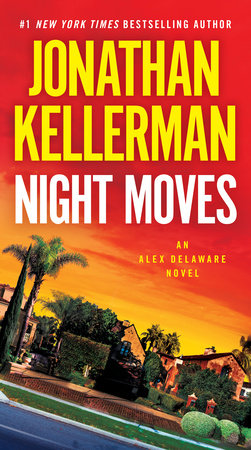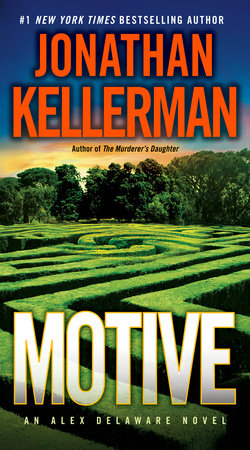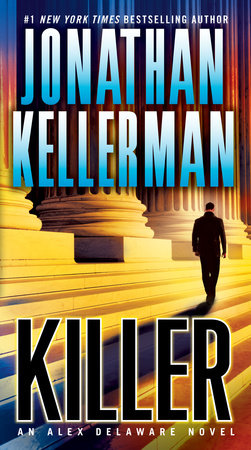Excerpt
Silent Partner
Chapter
1
I’ve always hated parties and, under normal circumstances, never would have attended the one on Saturday.
But my life was a mess. I relaxed my standards. And stepped into a nightmare.
Thursday morning I was the good doctor, focusing on my patients, determined not to let my own garbage get in the way of work.
I kept my eye on the boy.
He hadn’t yet gotten to the part where he tore the heads off the dolls. I watched him pick up the toy cars again and advance them toward each other in inevitable collision.
“Call!”
The ringing concussion of metal against metal blocked out the whine of the video camera before dying. He tossed the cars aside as if they burned his fingers. One of them flipped over and rocked on its roof like a trapped turtle. He poked at it, then looked up at me, seeking permission.
I nodded and he snatched up the cars. Turning them over in his hands, he examined the shiny undercarriages, spun the wheels, simulated the sounds of revving engines.
“Voom voom. Cah.”
A little over two, big and husky for his age, with the kind of fluid coordination that foretold athletic heroism. Blond hair, pug features, raisin-colored eyes that made me think of snowmen, an amber splash of freckles across nose and chubby cheeks.
A Norman Rockwell kid: the kind of son any red-blooded American father would be proud of.
His father’s blood was a rusty stain on the central divider somewhere along the Ventura Freeway.
“Voom cah!”
In six sessions, it was as close as he’d come to speaking. I wondered about it, wondered about a certain dullness in the eyes.
The second collision was sudden, harder. His concentration was intense. The dolls would come soon.
His mother looked up from her seat in the corner. For the past ten minutes she’d read the same page of a paperback entitled Will Yourself Successful! Any pretense of casualness was betrayed by her body language. She sat high and stiff in the chair, scratched her head, stretched her long dark hair as if it were yarn, and kept coiling and uncoiling it around her fingers. One of her feet tapped out a nonstop four-four beat, sending ripples that coursed upward through the soft flesh of a pale, unstockinged calf and disappeared under the hem of her sun dress.
The third crash made her wince. She lowered the book and looked at me, blinking hard. Just short of pretty—the kind of looks that flower in high school and fade fast. I smiled. She snapped her head down and returned to her book.
“Cah!” The boy grunted, took a car in each hand, smashed them together like cymbals, and let go upon impact. They careened across the carpet in opposite directions. Breathing hard, he toddled after them.
“Cah!” He picked them up and threw them down hard. “Voom! Cah!”
He went through the routine several more times, then abruptly flung the cars aside and began scanning the room with hungry, darting glances. Searching for the dolls, though I always left them in the same place.
A memory problem or just denial? At that age, all you could do was infer.
Which was what I’d told Mal Worthy when he’d described the case and asked for the consult.
“You’re not going to get hard proof.”
“Not even trying for it, Alex. Just give me something I can work with.”
“What about the mother?”
“As you’d expect, a mess.”
“Who’s working with her?”
“No one, for the moment, Alex. I tried to get her to see someone but she refused. In the meantime, just do your thing for Darren and if a little therapy for Mama takes place in the process, I won’t raise an objection. God knows she needs it—something like that happening to someone her age.”
“How’d you get involved in an injury case, anyway?”
“Second marriage. Father was my handyman. I handled the divorce as a favor. She was the other woman and remembered me with fondness. Actually, I used to do lots of P.I. in the beginning. Feels good to get back into it. So tell me, how do you feel about working with one this young?”
“I’ve had younger. How verbal is he?”
“If he talks I haven’t heard it. She claims before the accident he was putting a few words together, but I don’t get the impression they were saving up tuition for Cal Tech. If you could prove IQ loss, Alex, I could translate it into dollars.”
“Mal—”
He laughed over the phone. “I know, I know, Mr.—excuse me, Dr. Conservative. Far be it from me to—”
“Good talking to you, Mal. Have the mother call me to set up an appointment.”
“—attempt to unduly influence an expert witness. However, while you’re analyzing the situation, you might consider imagining what it’s going to be like for her, raising a kid by herself, no training, no money. Living with those memories. I just got pictures of the crash—they almost made me lose my lunch. There are some deep pockets here, Alex, and they deserve being dipped into.”
“Dah!” He’d found the dolls. Three men, a woman, a little boy. Small, soft plastic and pink, with bland, guileless faces, anatomically correct bodies, and detachable limbs. Next to them another pair of cars, larger than the first two, one red, one blue. A miniature child’s car seat had been placed in the rear seat of the blue one.
I stood, adjusted the video camera so that it was trained on the table, then sat on the floor next to him.
He picked up the blue car and positioned the dolls using a familiar sequence: one man driving, another next to him, the woman behind the driver, the child in the car seat. The red car was empty. One male doll remained on the table.
He flapped his arms and tugged his nose. Holding the blue car at arm’s length, he looked away from it.
I patted his shoulder. “It’s all right, Darren.”
He inhaled, blew out air, picked up the red car and placed both vehicles on the floor, two feet apart, grille to grille. Taking another deep breath, he puffed up his cheeks and let out a scream, then smashed them together full force.
The male passenger and the woman flew out and landed on the carpet. The boy doll slumped in its harness, head down.
It was the driver doll that held his attention—lying across the front seat, its flight restrained by one foot caught in the steering wheel. Huffing, the boy struggled to pull it loose. Tugged and twisted, started to grunt with frustration, but finally managed to free it. He held it away from his body, examined its plastic face, and yanked its head off. Then he placed it next to the little boy.
I heard a gasp from across the room and turned. Denise Burkhalter ducked back behind her book.
Oblivious of her reaction, the boy dropped the headless body, picked up the female doll, hugged it, put it down. Then he returned to the male dolls—the decapitated driver and the front-seat passenger. Raising them over his head, he threw them against the wall, watched them hit, then fall.
He looked at the child slumped in the seat and picked up the head next to it. After rolling it under his palm, he tossed it aside.
He stepped toward the male doll that hadn’t been moved—the driver of the other car—took another step, froze, then backed away.
The room was silent except for the hum of the camera. A page turned. He stood still for several moments, then was overtaken by a burst of hyperactivity so fierce it electrified the room.
Giggling, he rocked back and forth, wrung his hands and waved them in the air, sputtering and spitting. He ran from one side of the room to the other, kicking bookshelves, chairs, the desk, scuffing the baseboards, clawing the walls and leaving little greasy smudges on the plaster. His laughter rose in pitch before giving way to a croupy bark followed by a rush of tears. Throwing himself to the floor, he thrashed for a while, then curled fetally and lay there, sucking his thumb.
His mother remained behind her book.
I went to him and scooped him up in my arms.
His body was tense and he was chewing hard on his thumb. I held him in my lap, told him everything was okay, he was a good boy. His eyes opened for an instant, then closed. Milk-sweet breath mingled with the not unpleasant odor of child sweat.
“Do you want to go to Mommy?”
Drowsy nod.
She still hadn’t moved. I said, “Denise.” Nothing. I repeated her name.
She put the paperback in her purse, strung the purse over one shoulder, got up, and took him.
We left the library and walked toward the front of the house. By the time we reached the door he was sleeping. I held the door open. Cool air blew in. A gentle summer that kept threatening to heat up. From the distance came the sound of a motorized lawnmower.
“Any questions you want to ask me, Denise?”
“Nope.”
“How’d he sleep this week?”
“The same.”
“Six or seven nightmares?”
“About. I didn’t count—do I still have to?”
“It would help to know what’s going on.”
No response.
“The legal part of the evaluation is over, Denise. I have enough information for Mr. Worthy. But Darren’s still struggling—totally normal for what he’s been through.”
No response.
“He’s come a long way,” I said, “but he hasn’t been able to act out the role of the . . . other driver yet. There’s plenty of fear and anger still in him. It would help him to express it. I’d like to see him some more.”
She looked at the ceiling.
“Those dolls,” she said.
“I know. It’s hard to watch.”
She bit her lip.
“But it’s helpful for Darren, Denise. We can try having you wait outside next time. He’s ready for it.”
She said, “It’s far, coming up here.”
“Bad traffic?”
“The pits.”
“How long did it take you?”
“Hour and three quarters.”
Tujunga to Beverly Glen. A forty-minute freeway ride. If you could handle freeways.
“Surface streets jammed?”
“Uh-huh. And you’ve got some curvy roads up here.”
“I know. Sometimes when—”
Suddenly she was backing away. “Why do you make yourself so hard to get to, living up here! If you want to help people, why do you make it so damned hard!”
I waited a moment before answering. “I know it’s been rough, Denise. If you’d rather meet in Mr. Worthy’s—”
“Oh, forget it!” And she was out the door.
I watched her carry her son across the deck and down the stairs. His weight caused her to waddle. Her ungainliness made me want to rush down and help her. Instead, I stood there and watched her struggle. She finally made it to the rental car, worked hard at opening the rear door with one hand. Bending low, she managed to get Darren’s limp body into the car seat. Slamming the door shut, she walked around to the driver’s side and threw open the front door.
Putting her key in the ignition, she lowered her head to the steering wheel and let it rest there. She sat that way for a while before turning on the engine.


